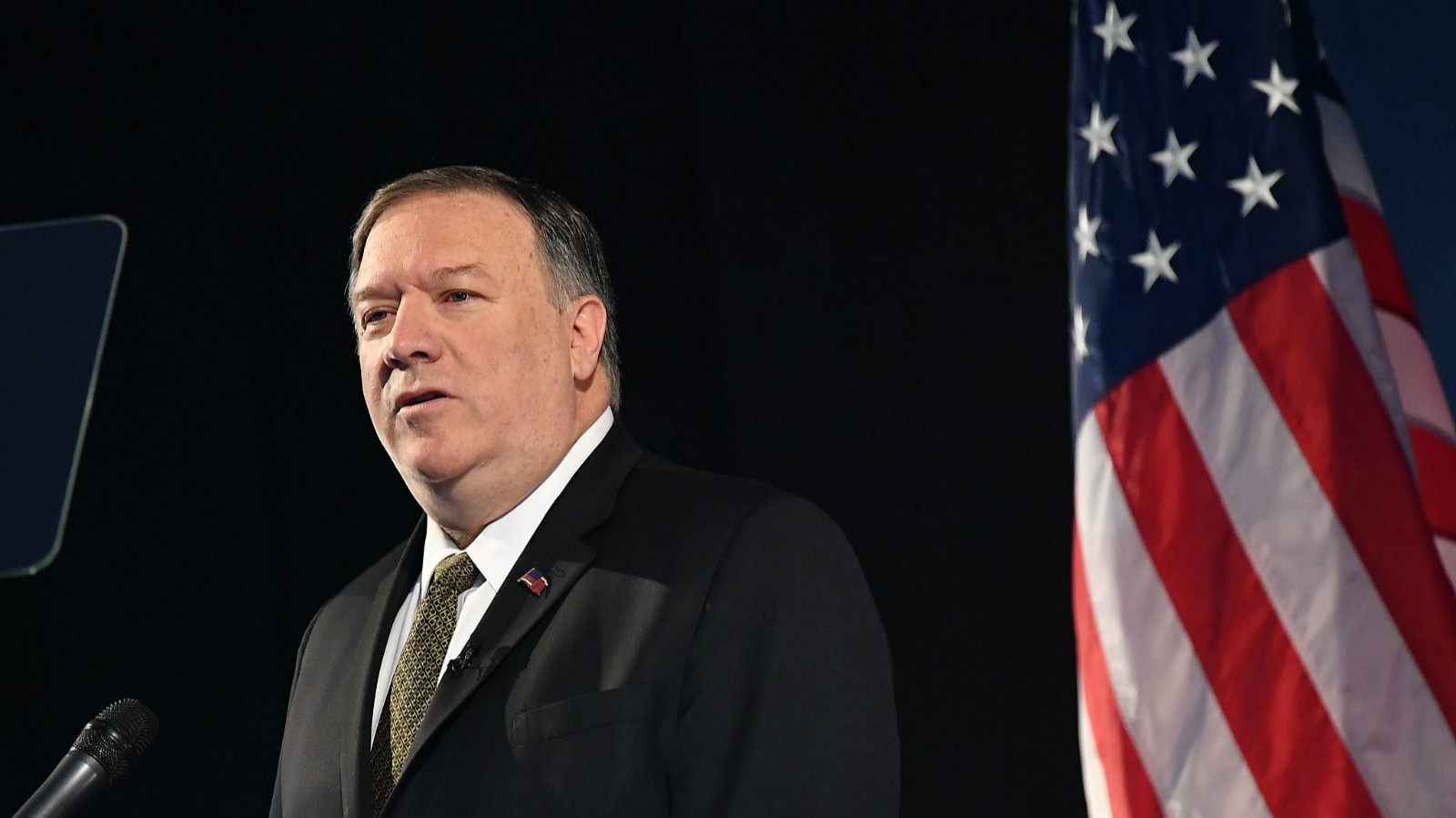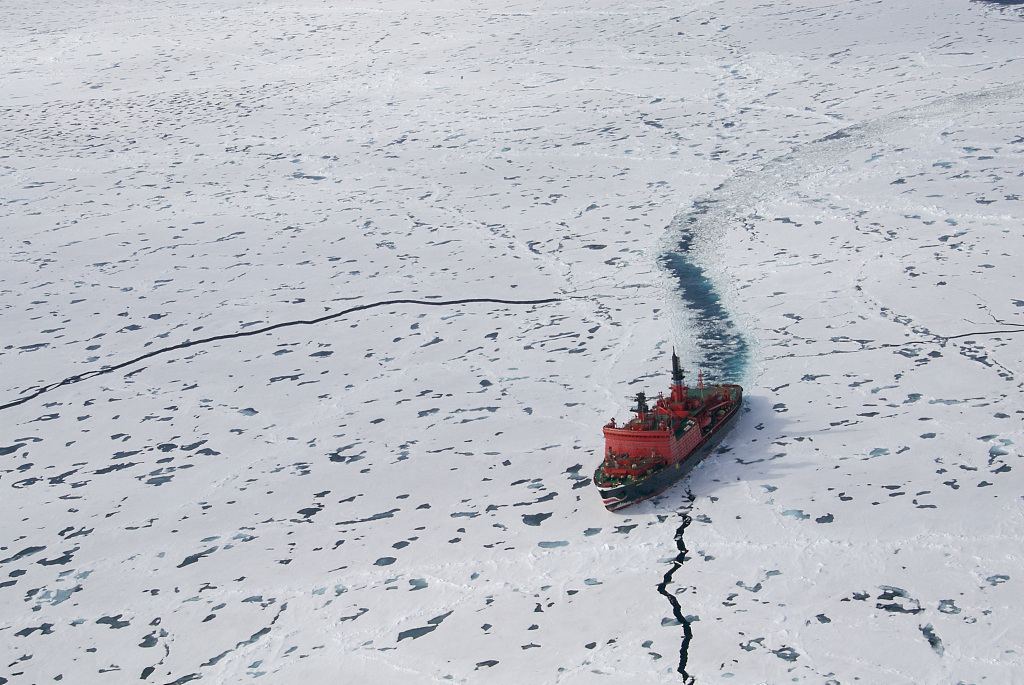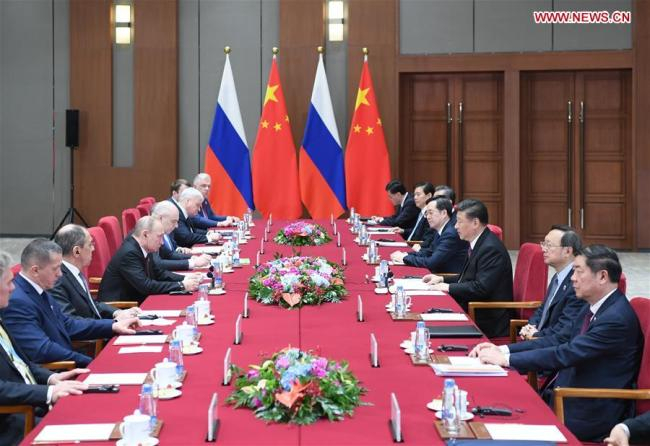
Opinion
18:37, 07-May-2019
The U.S. won't succeed in scaring China away from the Arctic
Andrew Korybko

Editor's note: Andrew Korybko is a Moscow-based American political analyst. The article reflects the author's opinion, and not necessarily the views of CGTN.
U.S. Secretary of State Mike Pompeo was characteristically critical of China while speaking at the Arctic Council summit on Monday, but his harsh words took on an even deeper significance than usual because they were intended to open up a new geographic front of hostility in the world. The Arctic Council comprises a handful of states whose territories lay within the Arctic Circle, but it also counts several observer nations such as China.
The organization has taken on a larger international role in recent years after it has been reported that the Arctic Ocean has some of the world's largest untapped energy and mineral reserves, to say nothing of the effect that climate change has had in opening up its waters as the shortest transit route between East Asia and Western Europe. One might understandably be inclined to think that this makes the region the perfect place to practice win-win cooperation between all relevant players, but regrettably, that's not what the U.S. has in mind.

VCG Photo
VCG Photo
Pompeo forebodingly mentioned early on in his speech that China's observer status in the Arctic Council "is contingent upon its respect for the sovereign rights of Arctic states," implying that accusations of disrespect for the same such as some media's irresponsible claims that China's scientific and mining interests in NATO-member Denmark's Greenland have a military component could be exploited to jeopardize its role in the organization.
The American Secretary of State strongly hinted as much when he cited a Pentagon report that "warned just last week that China could use its civilian research presence in the Arctic to strengthen its military presence, including the deployment of submarines to the region as a deterrent against nuclear attack." Continuing a common trend in American international political discourse, he also tried to deter the Arctic Council's members from joining China's Belt & Road Initiative (BRI) by alluding to what the U.S. deceitfully terms "debt-trap diplomacy."
Try as he might, however, Pompeo has already failed to stop Russia from expanding its Silk Road cooperation with China after President Putin proudly proclaimed his intention to connecting Russia's Northern Sea Route with China's Maritime Silk Road during his keynote speech at last month's BRI Forum in Beijing. The resultant Polar Silk Road that's expected to emerge from their efforts will greatly reduce the cost and time of shipping between the Eastern and Western regions of Eurasia and therefore make most products cheaper for the average consumer.

Chinese President Xi Jinping holds talks with his Russian counterpart Vladimir Putin on the sidelines of the Second Belt and Road Forum for International Cooperation in Beijing, April 26, 2019. /Xinhua Photo
Chinese President Xi Jinping holds talks with his Russian counterpart Vladimir Putin on the sidelines of the Second Belt and Road Forum for International Cooperation in Beijing, April 26, 2019. /Xinhua Photo
This will, in turn, improve Chinese-EU economic relations, which take on a heightened significance amid the ongoing so-called "trade war" that the U.S. is waging across the world. Desperate to discredit this scenario before it happens, Pompeo smeared China and Russia's game-changing cooperation in the Arctic by alleging that the region might "transform into a new South China Sea, fraught with militarization and competing territorial claims" as a result.
Instead of predicting the most realistic outcome of Sino-Russo cooperation there, his words more eerily foreshadow the U.S.' preferred outcome in the region that the Pentagon might actively pursue just as it's done in the South China Sea itself over the past few years. The American Navy has a history of exercising hegemonic control over the world's waterways, and it might, therefore, be seeking a pretext to involve itself in the Arctic sea lanes that Pompeo predicted earlier in his speech "could become the 21st-century Suez and Panama canals."
With this in mind, the Secretary of State's speech takes on an entirely different strategic meaning than the superficial one of an Arctic Council member state's top diplomat casually chatting with his counterparts. Actually, everything that he said can thus be interpreted as the U.S. proverbially throwing down the gauntlet and aggressively challenging China and Russia in the Arctic Ocean, opening up a new geographic front of hostility in the world but ultimately failing to scare both of them away from their win-win cooperation in the region that will inevitably benefit the rest of Eurasia with time.
(If you want to contribute and have specific expertise, please contact us at opinions@cgtn.com)

SITEMAP
Copyright © 2018 CGTN. Beijing ICP prepared NO.16065310-3
Copyright © 2018 CGTN. Beijing ICP prepared NO.16065310-3